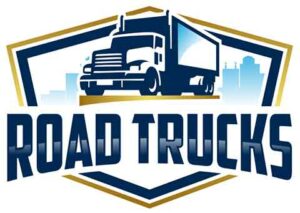There is a lot of information that can be beneficial to learn before planning a move to a new state. This includes learning whether or not U-hauls are equipped with E-ZPass or I-PASS. These passes allow individuals moving to a different state to easily travel through tolls.
U-Hauls are equipped with either E-ZPass or I-PASS. This allows renters to be able to pay for the various toll roads they pass through while moving from one state to another. The U-Haul company is charged for the time spent on a toll road. The renter is then billed for the toll road chargers.
It can be challenging for someone unfamiliar with toll roads to understand this process. This process can be overwhelming for anyone, especially someone who is in the process of moving. After conducting research about the E-ZPass or I-PASS that U-hauls are equipped with, the following information has been compiled below to benefit individuals moving from one state to another.
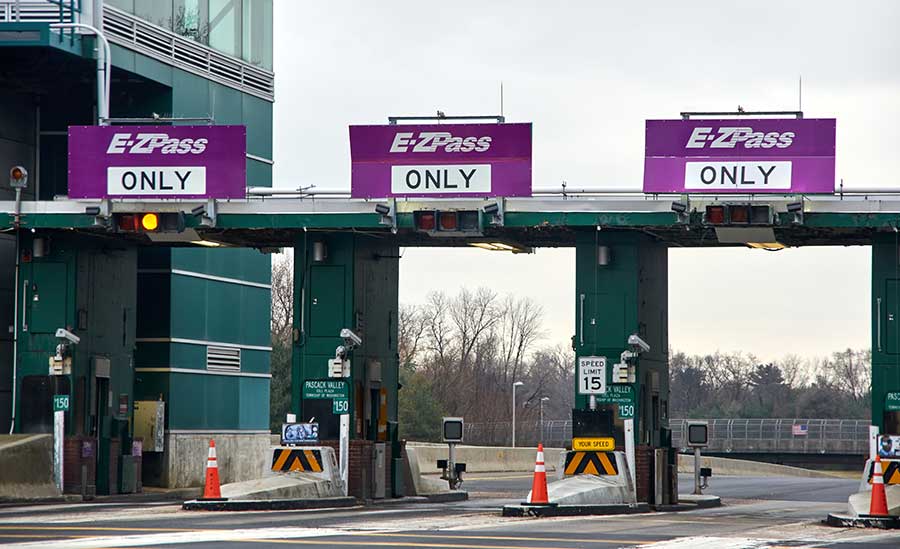
Contents
Why are U-hauls Equipped with Either E-ZPass or I-PASS?
U-Hauls are equipped with either E-ZPass or I-PASS to make the moving process easier on renters. Rather than having to wait in long lines to pay the toll fee, U-Haul renters can pass through the express lines, which allows them to get back onto the road quicker.
These passes make it easier not only for the individual renting the U-Haul but also for the U-Haul company itself. These passes ensure that all tolls are effectively paid for.
In U-Hauls, the E-ZPass or I-PASS is placed in the front window. This allows the pass to be able to be scanned when passing through the express lane of the toll.
How Do Renters Pay for the Toll Roads with E-ZPass or I-PASS?
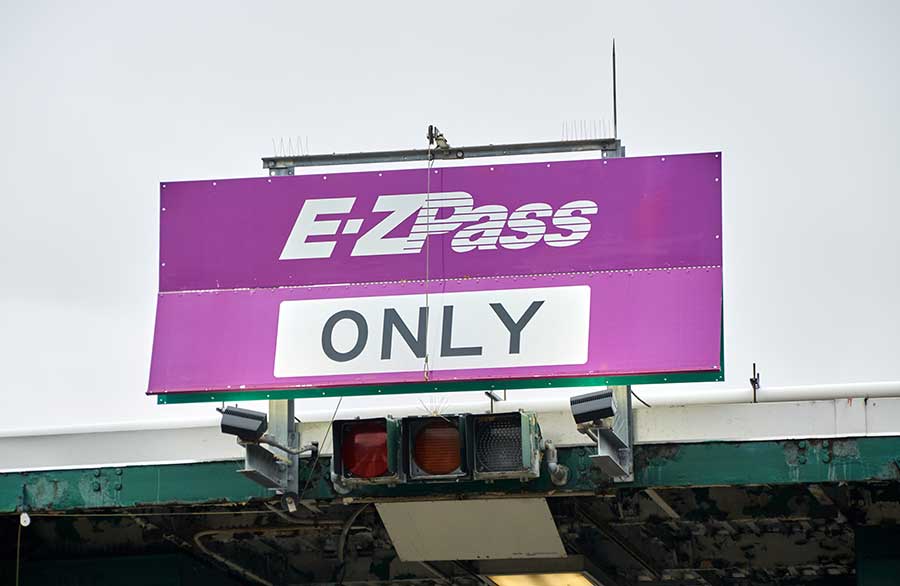
When passing through the express lane of a toll road, an E-ZPass or I-PASS is scanned. This then sends a bill to the owner of the vehicle registered with this pass. Because U-hauls are driven through toll roads by renters, the bill is charged to the U-Haul company. The company pays the charge for the amount of time a U-Haul spends on the toll road.
When an individual rents a U-Haul, a credit card is placed onto the account. This allows the U-Haul company to charge the renter for any charges from toll roads.
In addition to the fee from the toll road, many rental companies like U-Haul charge renters some form of an administrative fee. This can range anywhere from a few dollars to an additional twenty dollars per toll. These administrative fees are only charged for renters using an E-ZPass or an I-PASS to pass through tolls.
Benefits of Using E-ZPass or I-PASS
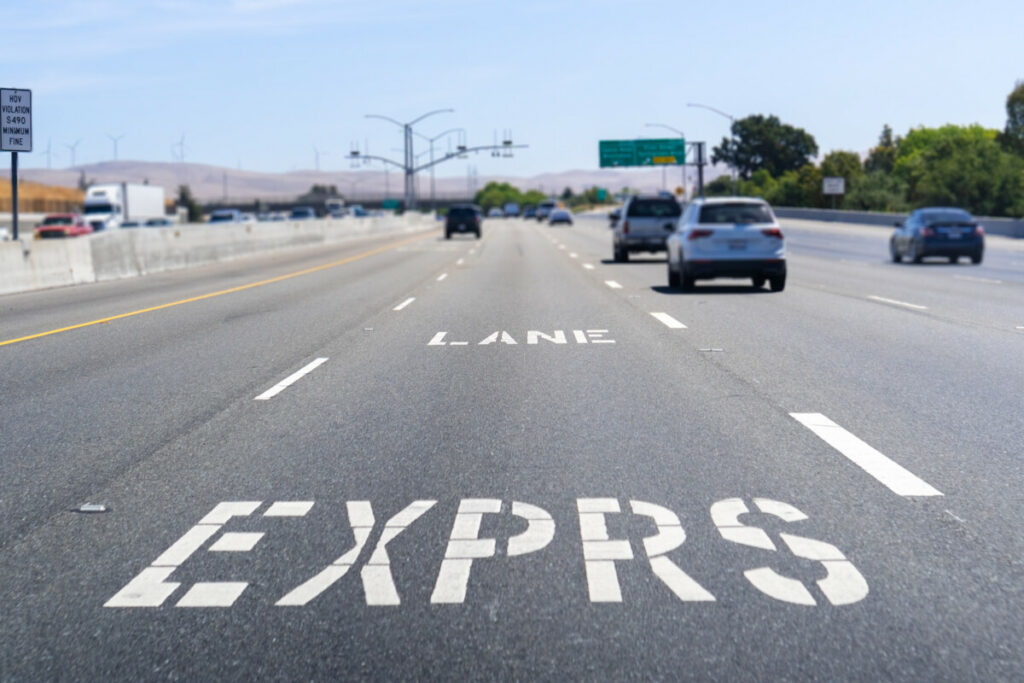
E-ZPass and I-PASS allow individuals passing through toll roads to do so quickly rather than waiting in a long line. Instead of needing to pay the fee at the toll, individuals with either of these passes can quickly have the pass scanned as they are driving through the express lane.
When an individual pays a fee at the toll, they are given a ticket. This ticket is stamped with the time the vehicle passed through the toll. At the exit toll, the driver of this car then pays for the time the vehicle spent on the toll road. Using an E-ZPass or an I-PASS can allow drivers to easily avoid having to keep track of a ticket as a result of the pass electronically tracking the time spent on the toll road.
Differences Between E-ZPass or I-PASS
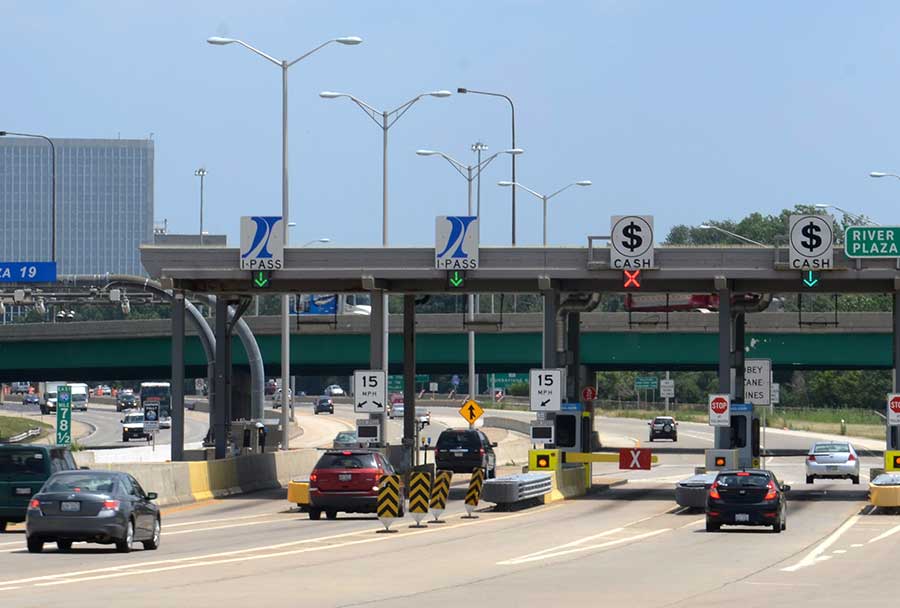
In many ways, E-ZPass and I-PASS are very similar. Both can be used by drivers to easily pass through toll roads. Each of these passes is placed in the front window to be easily scanned when an individual drives through the express lane. An I-PASS is the state of Illinois’ version of an E-ZPass.
The biggest difference between the I-PASS and E-ZPass is that not every state accepts the I-PASS, whereas they all accept the E-ZPass. There are only a total of sixteen states that allow the I-PASS to work the same as the E-ZPass.
I-Pass States: Delaware, Florida, Illinois, Indiana, Kentucky, Maine, Maryland, Massachusetts, New Hampshire, New Jersey, New York, North Carolina, Ohio, Pennsylvania, Rhode Island, and West Virginia.
E-ZPass States: Delaware, Florida, Illinois, Indiana, Kentucky, Maine, Maryland, Massachusetts, New Hampshire, New Jersey, New York, North Carolina, Ohio, Pennsylvania, Rhode Islands, Virginia, and West Virginia.
Another difference between these passes is the access to non-roadway facilities. This includes things such as an airport parking lot.
Options for Passing Through Toll Roads
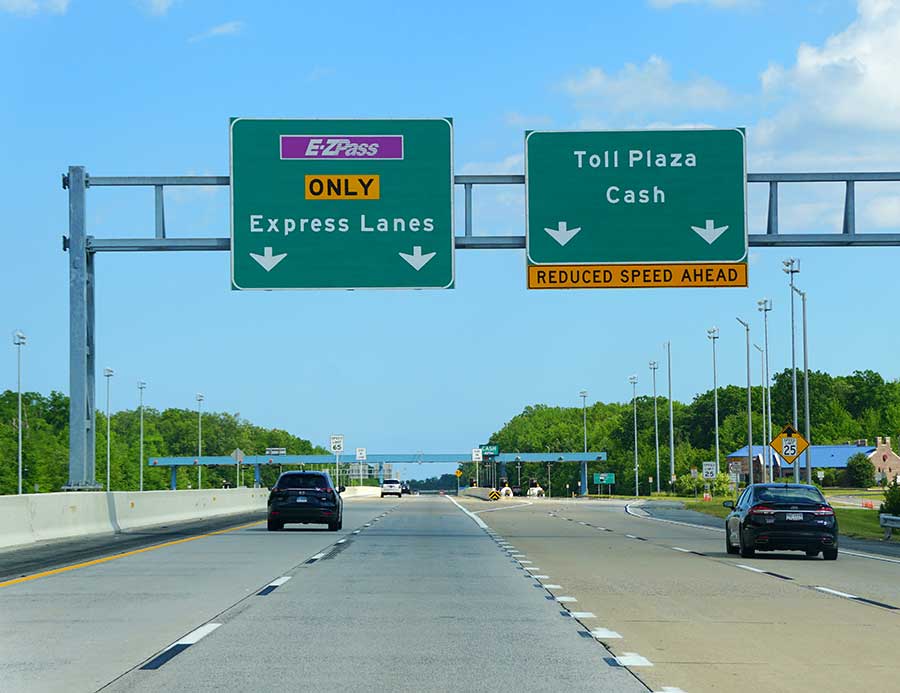
There are only two options when it comes to passing through toll roads. Using either an E-ZPass or an I-PASS to pass through the express lane quickly, or to wait in line to pay cash.
Each of these options has its pros and cons. It is ultimately up to a driver which of these options is best for them and their trip. In order for individuals to be able to pay with cash, there needs to be an individual working in the toll booth. This causes the state to hire individuals to collect the cash individuals are paying the tolls.
Individuals need to note that toll roads are done by each state which is why not every state throughout the United States has toll roads that are frequently visited.
Is Paying Tolls with Passes or Cash Better?
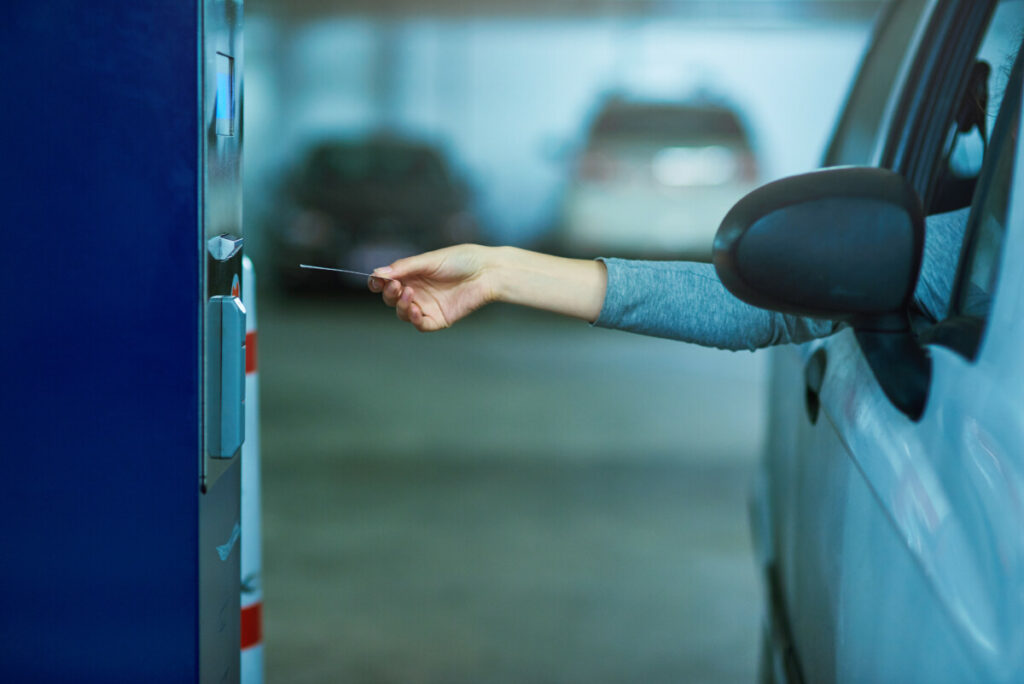
Ultimately, it comes down to personal preference when paying for tolls. Some individuals prefer the simplicity of using one of these passes to pass through the express lanes quickly. For these individuals, not having to worry about having the correct amount of cash in the vehicle is one of the biggest reasons they prefer using either the E-ZPass or the I-PASS. In addition, these vehicles typically have less wait time when passing through the express lanes.
Typically individuals prefer paying for tolls with cash when driving a rental vehicle because it allows them to avoid having to pay administrative fees. This can allow an individual to spend less on tolls when moving from one place to another than they would if they were using either the E-ZPass or the I-PASS. We wish you the best of luck!
Related Article: Driving A Moving Truck From The U.S. to Canada
